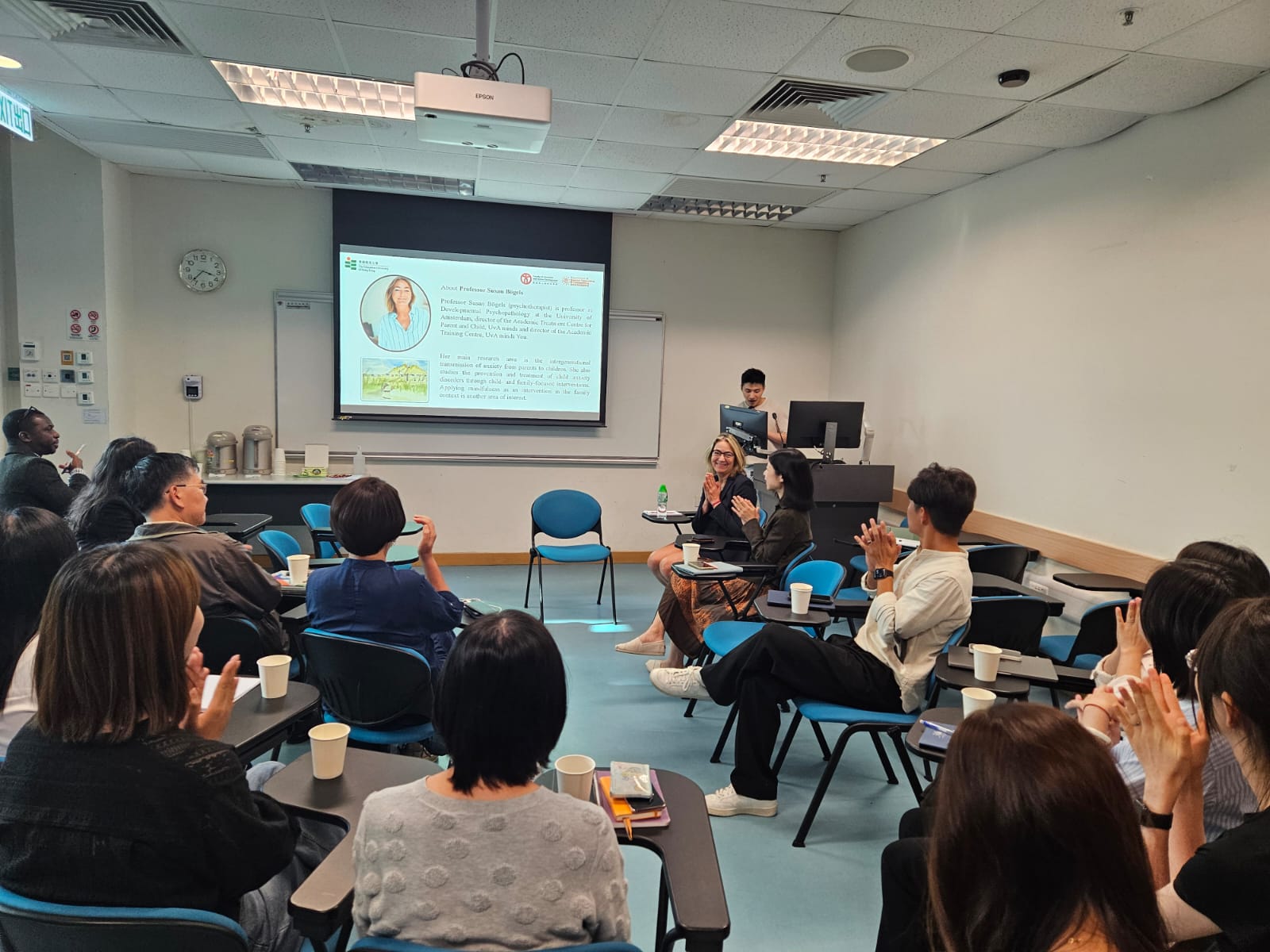
We are pleased to collaborate with the Faculty of Education and Human Development to organize the Distinguished Visiting Professors lecture, featuring Prof. Susan Bögels from the Faculty of Social and Behavioural Sciences, University of Amsterdam. The seminar, which attracted over 110 participants, centered around the topic “Living Mindfully with ADHD and Autism.”
During the lecture, Prof. Susan Bögels discussed how autism and attention deficit hyperactivity disorder (ADHD) are neurodevelopmental conditions often caused by minimal brain dysfunction. She explained that individuals with autism and ADHD are particularly susceptible to sensory overload, attention problems, and high levels of stress, especially in today's fast-paced urban environment. Those living with individuals with autism or ADHD, such as partners, parents, or children, may also experience significant stress due to the shared or absorbed stress.
Prof. Bögels emphasized the mindfulness in regulating sensory overload, attention, and both intrapersonal and interpersonal stress. She suggested that acceptance and meditation can help manage stress in children with ADHD.
Additionally, Prof. Bögels engaged in a discussion with our department colleagues, enriching our understanding and sparking meaningful conversations on the impact of gender on neurodiversity and how to combine practice with research. She highlighted several key points on the insights of autism individuals and gender identity with the challenges in practice research:



